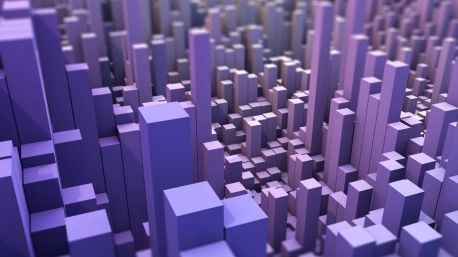Introduction:The integration of Artificial Intelligence (AI) into building design marks a pivotal shift in the architectural landscape. AI is set to redefine the process of architectural creation, from the embryonic stages of conception to the tangible phases of construction. This article examines how AI enriches design creativity, bolsters construction efficiency, and fosters sustainability while reshaping the future of the building industry.
Enhanced Creativity through AI
AI-Driven Design Exploration
In the diverse world of architectural design, AI serves as a catalyst, expanding the realm of possibilities. It generates design alternatives by assimilating environmental data and user preferences into its algorithms. This helps architects make informed decisions at the project’s outset. AI acts as a creative partner, offering options previously unexplored, ensuring that the best-suited design emerges for a specific context.
Computational Creativity and Parametric Design
Parametric design, empowered by AI, unveils unprecedented possibilities in architecture. Complex patterns and structures, once constrained by manual calculations and processes, are now seamlessly crafted through computational creativity. As AI continues to push the boundaries, architectural forms evolve, becoming more intricate and responsive to diverse criteria, revolutionizing traditional design paradigms.
Boosting Efficiency in Construction
Predictive Analytics in Building Performance
Predictive analytics leverage AI to anticipate various outcomes affecting building performance and sustainability. Such foresight into environmental and usage impacts aids architects in adopting more robust design strategies. Analyzing patterns and simulating future scenarios, AI provides a competitive edge in creating buildings that are resilient to time and change.
Automation and Robotics in Construction
The construction domain is undergoing a radical transformation with AI-driven automation and robotics. These innovations streamline operations, ensuring accuracy and elevating safety standards on-site. Automated machinery, guided by sophisticated AI systems, accelerates construction while mitigating risks of human error, paving the way for a new age in construction efficiency.
Sustainability and Responsiveness in Architecture
AI-Enabled Adaptive Buildings
AI-empowered buildings represent the zenith of sustainability and responsiveness. Interlaced with sensors, these structures dynamically adjust to environmental variables and occupant preferences. The seamless adaptation optimizes energy efficiency and elevates living standards, illustrating AI’s significant role in the progressive development of responsive architecture.
Ethical and Societal Considerations
The ethical deployment of AI in building design necessitates a profound responsibility towards individuals’ privacy and societal equity. Architects are entrusted not only with the task of creating functional spaces but also with ensuring that the incorporation of AI aligns with societal interests and preserves the integrity of communities. Balancing innovation with ethical considerations is paramount in the era of AI-enabled design.
The Road Ahead: AI’s Growing Impact
Embracing AI in Architectural Education
Educational frameworks must evolve by integrating AI into the curriculum for aspiring architects, equipping them for a tech-intensive future. Initiatives and educational programs are emerging, creating an environment where AI is integral to the architectural thought process. Preparing students for this transition is crucial for the seamless integration of AI into future architectural practice.
The Evolution of Building Codes and Regulations
The advent of AI-driven design is prompting a reevaluation of existing building codes and regulations. It is imperative that such frameworks adapt to accommodate new technological paradigms while ensuring the safety and quality of constructed environments. This evolution in standards will facilitate the exploitation of AI’s full potential without compromising foundational construction values.
A Glimpse into Tomorrow’s Landscapes
The Shift in Aesthetic Paradigms
AI induces a transformation in architectural aesthetics, propelling the design community into an era of novel forms and manifestations. Future cityscapes are poised to be masterpieces of AI-inspired design, reflecting a shift in the creative consciousness of architects and builders—skylines will morph, flaunting the innovative capabilities of AI as a muse for contemporary and avant-garde styles.
Long-term Industry Transformation
Artificial Intelligence is revolutionizing architectural design by bringing advanced capabilities from initial concepts to the final construction stages. Infusing AI allows designers to tap into enhanced creativity, leveraging algorithms that predict and shape design outcomes. The construction process benefits from increased efficiency as AI-powered tools optimize time and resources. Furthermore, AI plays a crucial role in promoting sustainability within the industry by enabling the creation of energy-efficient structures through data-driven insights. As AI technology continues to evolve, its impact on building design grows increasingly profound, pointing towards a future where architecture is as smart and adaptive as the technologies that shape it. This transformative shift bodes well for design aesthetics and functionality and for the environmental footprint of buildings, ensuring a smarter, greener approach to the spaces we inhabit.









